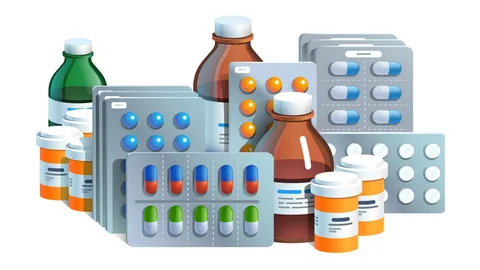In the pharmaceutical industry, Contract Development and Manufacturing Organizations (CDMOs) have emerged as pivotal partners, fundamentally transforming the drug development and manufacturing process.
By offering end-to-end services from early drug development through commercial production, CDMOs streamline operations and accelerate timelines, enabling faster, more efficient, and cost-effective drug production.
This article examines how pharmaceutical CDMOs are revolutionizing the industry on a global scale in five key ways and why these factors are so attractive to pharmaceutical companies.
1. Speed and Efficiency in Drug Development
Speed to market is a critical factor in modern drug development. Pharmaceutical CDMOs play a key role in expediting drug development by leveraging their experience, integrated processes, and ready infrastructure.
With streamlined workflows and parallel processing of development steps, CDMOs help reduce bottlenecks and optimize each stage of the project.
In fact, by optimizing processes and using specialized equipment, CDMOs can accelerate development and production timelines, getting critical drugs to market more efficiently
2. Specialized Expertise and Access to Advanced Technology
Pharmaceutical CDMOs employ well-qualified chemists, process engineers, R&D scientists, and other specialists who have honed their skills across numerous development programs.
They also operate state-of-the-art facilities and equipment for analytical testing and manufacturing, which can handle everything from complex chemical synthesis to high-precision analytical characterization.
Many CDMOs stay at the forefront of innovation, such as adopting digital tools, automation, and novel production methodologies, to continually improve efficiency and product quality.
3. Scalability and Flexible Manufacturing
A project may start with small batches for preclinical studies and need to scale up to large volumes for Phase III trials or commercial launch. A pharmaceutical CDMO is equipped to handle this entire spectrum.
They can seamlessly scale production up or down to meet the specific needs of each stage, whether it’s a few kilograms of an Active Pharmaceutical Ingredient (API) or multi-ton commercial batches. This scalability means that pharma and biotech companies can pursue new products without the worry of outgrowing their production capacity.
In an unpredictable market, a flexible pharmaceutical CDMO can pivot to meet sudden changes in demand, ensuring an uninterrupted supply and avoiding delays.
4. Risk Mitigation and Cost-Efficiency
By partnering with a pharmaceutical CDMO, companies avoid heavy upfront investments and instead leverage the CDMO’s existing infrastructure and expertise.
CDMOs are able to spread costs across multiple projects and utilize economies of scale, making drug development and manufacturing more cost-effective.
They also bring process optimization know-how: by refining synthesis routes and manufacturing workflows, CDMOs minimize waste and improve efficiency, leading to significant cost savings for their clients.
From a risk standpoint, working with an experienced pharmaceutical CDMO means that potential pitfalls in development, such as scale-up issues or supply chain disruptions, can be anticipated and managed by seasoned professionals.
5. Regulatory Compliance and Support
Pharmaceutical CDMOs operate under strict Good Manufacturing Practice (GMP) standards and have quality assurance systems to ensure every product meets the necessary safety and efficacy guidelines.
They keep abreast of evolving regulations across different regions and can help clients interpret and implement these requirements.
CDMOs assist with preparing documentation for clinical trial applications and marketing approvals, validating processes, and performing rigorous quality control testing.
By ensuring compliance with global regulatory standards and providing guidance through the approval process, CDMOs help reduce the risk of costly delays or compliance issues.
A Prime Example of Pharmaceutical CDMOs – Neuland Labs
Neuland Labs is a global CDMO that collaborates with biotechnology and pharma companies to design, develop, and manufacture complex APIs.
The company specializes in small molecules and therapeutic peptides, and it can seamlessly scale projects, exemplifying the flexibility and end-to-end support that modern pharma companies seek.
With over 4 decades of experience, Neuland has a demonstrated commitment to innovation in the CDMO space.
The company continually invests in state-of-the-art capabilities. For instance, it recently announced a dedicated peptide manufacturing facility featuring advanced automated synthesis systems and high-resolution analytical technologies to bolster large-scale peptide production.
Neuland Labs stands out as a pharmaceutical CDMO that embodies the speed, expertise, scalability, compliance, and innovative spirit that are driving the industry forward.
FAQs
- How do CDMOs help pharmaceutical companies manage global supply chain disruptions?
Pharmaceutical CDMOs often operate multiple facilities across regions, providing geographic redundancy and strategic sourcing. This allows them to pivot quickly during raw material shortages or geopolitical issues, ensuring a steady supply of APIs and reducing the impact of global supply chain disruptions. - Can CDMOs support sustainability and green chemistry initiatives in drug manufacturing?
Yes, many pharmaceutical CDMOs are adopting green chemistry practices, such as solvent recycling, process intensification, and energy-efficient technologies, to minimize environmental impact. These efforts not only support clients’ sustainability goals but also align with growing global regulatory pressures around eco-friendly pharmaceutical production. - What role do CDMOs play in lifecycle management of approved drugs?
Beyond development and initial manufacturing, CDMOs support post-approval changes like formulation upgrades, process optimization, and second-generation synthesis. This helps extend a drug’s lifecycle, improve margins, and adapt to market needs, making CDMOs valuable long-term partners, not just launch-phase vendors. - How do CDMOs contribute to IP protection and data security during development?
Reputable CDMOs implement robust legal agreements, data encryption protocols, and strict access controls to protect client intellectual property. Their compliance with international quality and data integrity standards ensures that proprietary processes and formulations remain secure throughout the development lifecycle.


